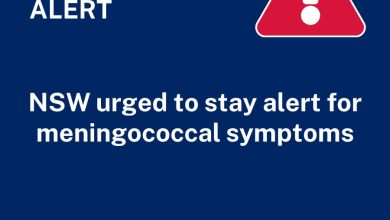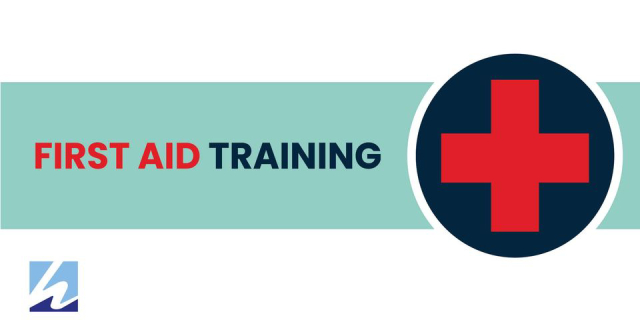Types Of Hearing Tests For Babies And Children
Types Of Hearing Tests For Babies And Children
While it is uncommon for children to experience significant hearing issues, there are still some kids who suffer from hearing loss since birth or develop later as they grow. In such a situation, it is crucial to look for audiology near me and get your child’s hearing test done promptly. It will help identify and address any potential problems. Hearing tests must be routinely provided to newborn babies and children to detect any potential issues at an early stage of their development. Many hearing clinics are providing free hearing test for child, such as Family Hearing Centre, Newcastle.
Significance of Hearing Tests
- Hearing tests that are conducted shortly after birth can effectively detect most infants with significant hearing loss.
- However, if you have not got your children’s hearing tested yet it is not too late. Such tests can be conducted in the later stages of childhood as well. This will in turn identify any issues that may have been overlooked or gradually worsening.
- Routine hearing check-ups avoid the risk of undiagnosed hearing problems that could persist for an extended period.
- To steer clear of hindrances in a child’s speech and language development, social skills, and education, identifying hearing problems at an early stage is crucial.
- Early detection and management enhance the effectiveness of any treatment given. Ensuring an early diagnosis will also guarantee that you and your child have access to any necessary support services.
The most frequently asked question is when is the right time to start conducting such tests? If one may think about it then it varies for each individual. Although, as suggested by the doctors it is, shortly after birth, before you are discharged from the hospital. Children of all ages, including those born at home, are invited to come to the hospital for this routine procedure.
Between 9 months and 2.5 years of age, it is common for health and development reviews to include questions about your child’s hearing. If there are any concerns, hearing tests can be scheduled as and when required.
Typically, children around the age of 4 or 5 undergo a hearing test as they begin school. The test is usually administered either at school or at an audiology department, depending on your location. If you have any concerns, your child’s hearing can be checked at any other time as well. If you have concerns about your child’s hearing, it would be a good idea to speak with a GP or health visitor.
Hearing Screening for New Borns
Screening for potential hearing problems in newborn babies can be done through two quick and painless tests. Tests are typically performed on the ward before your discharge from the hospital.
Hearing Tests for Older Babies
Various hearing tests can be utilised to assess hearing issues in older babies and young children. Typically, these procedures are conducted at an audiology department.
Visual reinforcement audiometry is a technique used to assess a child’s hearing abilities. Visual reinforcement audiometry (VRA) is commonly employed to assess hearing in young children, typically ranging from around 6 months to 2.5 years of age.
During the test, your child will be seated either on your lap or on a chair while sounds are played. Your baby will learn to associate sounds with visual rewards, like a toy or a computer screen lighting up.
Once your child can successfully connect the sound with the visual reward, we will adjust the volume and pitch of the sound to identify the faintest sounds your child can perceive.
-
Audiometry Testing
Play audiometry tests are sometimes conducted for young children between the ages of 1.5 and 5 years.
Throughout the test, your child will be prompted to complete a straightforward task upon hearing sounds played through headphones or speakers. There are a range of activities that can be done, from placing a ball in a bucket to solving a puzzle.
The volume and pitch of the sound will be adjusted to determine the quietest sounds your child can hear, just like with VRA.
-
Audiometry for Pure Tones
Older children may undergo a test known as pure tone audiometry. This test is commonly administered to assess a child’s hearing before their enrollment in school. It is occasionally known as the “sweep test”. It’s comparable to a hearing test that an adult might undergo.
During pure tone audiometry, a machine produces sounds at various volumes and frequencies. Your child will be able to hear the sounds through headphones and will be prompted to press a button in response.
The tester can determine the lowest volume of sounds that your child can hear by adjusting the sound level.
-
Test for Bone Conduction
Furthermore, the tests mentioned above can be conducted by utilizing a compact vibrating device positioned behind the ear, in addition to employing speakers or headphones.
This device allows sound to be transmitted directly to the inner ear via the bones in the head. It can be beneficial in identifying any potential issues with your child’s hearing by pinpointing the specific area of the ear that may be malfunctioning.
-
Tympanometry
It is a test that evaluates the flexibility of the eardrum. To ensure optimal hearing, your eardrum must possess the necessary flexibility to facilitate the passage of sound. If the eardrum is not flexible enough, such as when there is fluid behind it (glue ear), sounds will reflect off the eardrum instead of passing through it.
During the test, a gentle rubber tube will be positioned at the entrance of your child’s ear. A gentle stream of air is blown down the tube, accompanied by a soft sound emitted from a small speaker within. The tube then detects and analyses the sound that is reflected from the ear.
Factors contributing to hearing issues in Infants and Young Individuals
Various factors can contribute to a child experiencing hearing difficulties, including temporary hearing loss caused by common illnesses like the common cold. Below are potential causes of hearing loss that can be identified through routine tests:
- Glue ear
It is a condition where fluid accumulates in the middle ear, often affecting young children.
2. Infections
Additionally, there are infections that can occur during pregnancy or at birth, such as rubella (german measles) or cytomegalovirus, which can lead to gradual hearing loss.
3. Hereditary
Conditions that can impair the functioning of the ears or nerves include inherited factors, sometimes from your genes.
4. Physical Injury
Additionally, damage to the cochlear or auditory nerves, which are responsible for transmitting hearing signals to the brain, can occur due to various reasons such as a severe head injury, exposure to loud noise, or head surgery.
5. Lack of Oxygen
Another potential cause is oxygen deprivation during birth, also known as birth asphyxia.
6. Brain Injury
Illnesses like meningitis and encephalitis, which both result in brain swelling, are of concern.
Recognizing indications of a hearing issue
Receiving proper and regular treatment will become a must for your child. Besides, you must remain vigilant for any signs of potential issues and seek guidance if you have any concerns. Issues that are overlooked often lead to bigger problems.
It is recommended to maintain a health book that circles the child’s record so far. This will help you keep a check on the status and will guide you ahead.
Signs of Hearing Loss:-
- Lack of focus – Ignoring when their name is called.
- Loud Speaking & Volume – Not being able to read a room and speak loudly without realizing the intensity. Lack of attention to the television volume.
- Lack of Source Locating – Struggling to locate the source of a sound even when the source is loud enough for normal hearing.
- Fumbling or Mispronouncing Words – For older children, this can be recognized if one observes a shift in their academic performance. Also, when the child is speaking normally while sitting on a dining table.
It is advisable to observe such changes or occurrences in your child while they’re growing or even as an infant. If you have any concerns about your child’s hearing, it’s a good idea to reach out to a GP or health visitor for guidance. Hearing tests are helpful and risk-free and available for children of all ages. Better now than never! Family Hearing Centre is a reputable clinic in Newcastle, you can contact them for a free hearing test for child. They have a team of the best audiologists in the region. They can help you with the right treatment and hearing aids at the most affordable prices.




